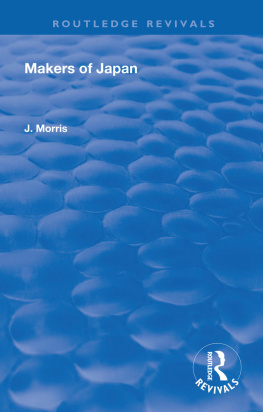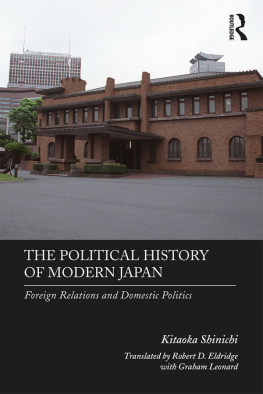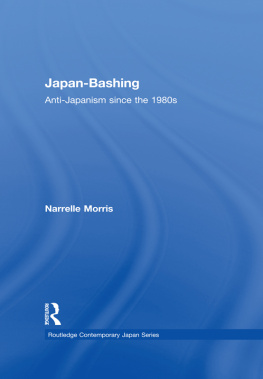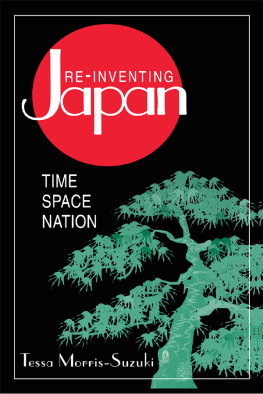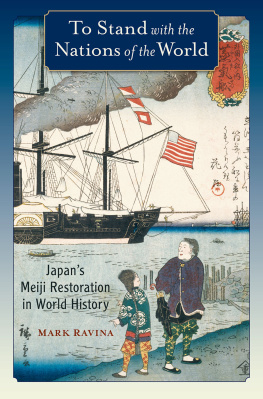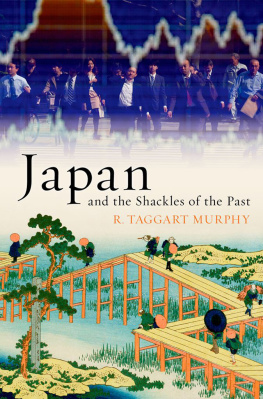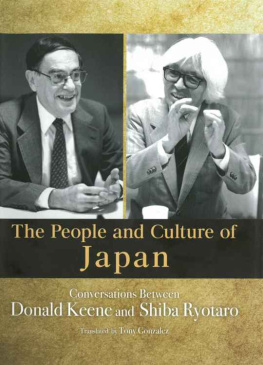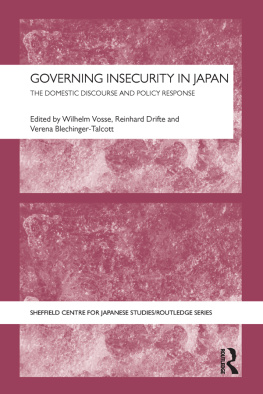First published in 1906 by Methuen & Co. Ltd.
This edition first published in 2018 by Routledge
2 Park Square, Milton Park, Abingdon, Oxon, OX14 4RN
and by Routledge
711 Third Avenue, New York, NY 10017
Routledge is an imprint of the Taylor & Francis Group, an informa business
1906 by Taylor & Francis
All rights reserved. No part of this book may be reprinted or reproduced or utilised in any form or by any electronic, mechanical, or other means, now known or hereafter invented, including photocopying and recording, or in any information storage or retrieval system, without permission in writing from the publishers.
Publisher's Note
The publisher has gone to great lengths to ensure the quality of this reprint but points out that some imperfections in the original copies may be apparent.
Disclaimer
The publisher has made every effort to trace copyright holders and welcomes correspondence from those they have been unable to contact.
A Library of Congress record exists under ISBN: 40036272
ISBN 13: 978-1-138-60230-4 (hbk)
ISBN 13: 978-1-138-60233-5 (pbk)
ISBN 13: 978-0-429-46238-2 (ebk)
Preface
MODERN JAPAN dates from the advent on the coast of Idzu province of the American squadron under Commodore Perry in 1853. Prior to that time, however, more than one attempt, predestined to failure, had been made to bring about the abolition of the feudal system, the agitators, in nearly every case, paying the penalty of their boldness with their lives. Among the more famous of these heroes were Fujita Toko, Yoshida Shoin, and Sakuma Shozan,patriots who shone during the first half of the nineteenth century. They were in advance of their age. They lived in the days of the Tokugawa Shogunate, when old ideas on the subject of foreign intercourse still were uppermost. It was dangerous to advocate, as these men did, a policy of complete reconstruction on an imperialistic basis, yet they had the courage of their opinions, and with might and main advocated recourse to Occidental arts and sciences for the express object of rendering their country strong to resist aggression in every form. Their memory is held by all their fellow-countrymen in the very highest respect, not more for their self-sacrifice than for the real benefits that are seen to have accrued to the people from their foresight. One lost his life in a terrible earthquake another was executed by order of the Sho-gun, and the third was stabbed to death by Ro-nins, or "Wave-men," the turbulent spirits of an epoch of social and political unrest. All three are esteemed as martyrs in the cause of progress. And although the country was not reopened, after its voluntary seclusion of two centuries and a half, until the treaty with the United States which Perry negotiated became operative in 1854, many surreptitious efforts had been made to obtain a footing in the Japanese empire, between the time of the East India Company's withdrawal in 1623 and the appearance of the "black ships" of the American squadron in Kurihama Bay. The Portuguese had found their way to the isles of Japan as early as 1542, and might have remained there indefinitely had they not aimed at the acquisition of political power, as well as at the spread of the Christian religion. Expulsion followed persecution, and the sins of the Portuguese were visited on all foreigners indiscriminately, access to the Land of the Rising Sun being from that date denied to all aliens alike, save a few Dutchmen who were permitted on somewhat humiliating conditions to remain at Nagasaki for purposes of trade. Will Adams, sailor and shipwright, of Limehouse, London, passed the last twenty years of his life at Yedo, and died on the 6th of May 1620, while still in the service of the Shogun Iyemitsu, and contemporarily with him there dwelt for a time at Hirado, a tiny island on the west coast of Kiu-shiu, between which and the mainland flow the "Spex Straits," a certain Captain John Saris, founder of the East India Company's depot there. These men were in reality the first to obtain a footing on Japanese soil as representatives of England. Adams died and was buried near Yokohama, and Saris returned to London, on the retirement of his Company, for the time being, from the Japanese trade.
There came also to the Japanese ports at various times travellers from Russia, including an embassy under M. Resanoff, whalers from the United States, and several British warships and merchantmen. The Eclipse of Boston, Mass., was at Nagasaki as early as 1807, and the British man-of-war Phaeton called at that port the following year. M. Golownin spent two years in captivity to the feudal lord of Matsumaye in Yeso, in 1811-1813, and the famous Dr Von Siebold was able to pass four years, from 1825 to 1829, in the Shogun's capital of Yedo, or as it was then commonly spelt, Jeddo. The King William who reigned in Holland in 1844 contrived, it is said, to have his autograph letter presented in that year to the supposed ruler of Japan, in reality the Shogun, urging the opening of Japan to foreign intercourse. There was an American whaler in Yedo Bay in 1845, and two such vessels were wrecked soon afterwards on the Japanese coasts, their crews being well treated by the inhabitants. Five years before Commodore Perry landed at Uraga there had been some American vessels in Yedo Bay under Commodore Biddle, and a British ship, the Mariner , found her way thither in 1849, By such means more and more had come to be known of Japan and its people, though in a vague, disjointed fashion, among the dwellers in the Occident, despite the existence of Iyemitsu's edict prohibiting travel. Still, the rule was very strictly enforced, and even those subjects of the Japanese Emperor who had chanced to be carried off to America in vessels by which they had been saved when shipwrecked in their own junks were not permitted to return to their own country until after its formal opening to commerce in 1854. Some who had thus involuntarily quitted their native land as children were scarcely able to speak their mother tongue on their return, though well acquainted with English, which they had acquired in the interval. Needless to say, they speedily recovered the use of Japanese as a language and became of immense service to their country as interpreters at a time when very few who knew English were to be met with there. Much more was known in those days of Dutch than of any other foreign tongue, as works in Dutch had been procured of the "Oranda-jin" as the Hollanders were termed then dwelling in Nagasaki, and had been most diligently studied, not less for the sake of learning the language than of absorbing the information on scientific matters which those works were fitted to convey.
Concurrently with the growth of a desire for the restoration of the true imperial rule there had been a revival of learning, and Confucianism, long in decay by reason of the greater attachment of the masses to the tenets of Buddhism, began again to take hold of the popular mind. Chinese literature had become once more the study of the educated classes, and a demand arose for everything introduced from China which was only equalled, perhaps, by that created a half-century later for things European. In proportion as Buddhism lost its hold of the people the ancient Shinto religion, which is based upon the veneration of ancestors, and is directly connected with the patriotic devotion of the subjects of the Ten-shi to the Imperial house, acquired fresh strength, to the complete overthrow of the Buddhistic faith and its disestablishment as a State religion. Under the Tokugawa regime it had attained to immense power and influence, but with the conviction gaining ground everywhere that the best interests of the country were to be served only by the assumption of the active duties of sovereignty by the real monarch instead of his delegate, the cult of Shinto triumphed and the Buddhistic religion, though by no means extinguished, took second place in the estimation of his Majesty's loyal subjects. But this was not until nearly eighteen years had elapsed from the date of Perry's arrival at Uraga, and in the interval the country underwent innumerable vicissitudes, the effects in reality of the sharp divergences of opinion which the proposal to throw open the country to foreign trade and intercourse created. There were two parties in the Stateviz. the Jo-I or party of exclusion, and the Kai-koku or party of admission. Jo signifies expulsion,to thrust from one,and I means a barbarian. Kai-koku , on the other hand, was literally "to open the country," and the distinction between the two parties was therefore most marked. Eventually the Jo-I party became the O-Sei or party of Imperial Government, in opposition to the Baku-fu, lit. : Military Curtain government, by which was meant the government of the Shogun. Naturally all those who were opposed from one cause or another to the prolongation of the prevailing system of government by the Shogun ranged themselves under the banner of the Jo-I, whether actually hostile to aliens or not, but when the cry for expulsion had served its purpose the promoters of the movement against the Bakufu were willing enough that it should be abolished, in favour of a term which more aptly expressed the real objects and desires of the party so constituted. It is a fact that many of Japan's foremost statesmen were originally members of the Jo-I organisation, though it certainly is not from that to be inferred that they were at any period of their careers downright hostile to foreigners. The famous motto was adopted essentially as a matter of policy.



